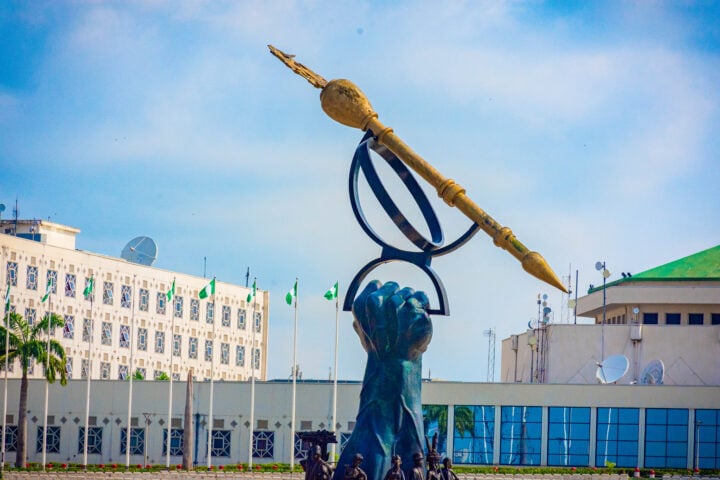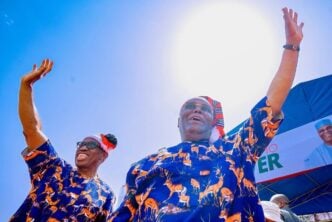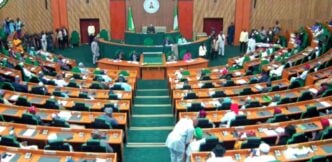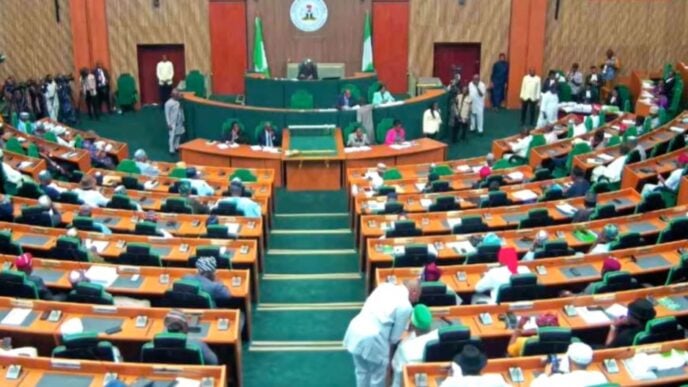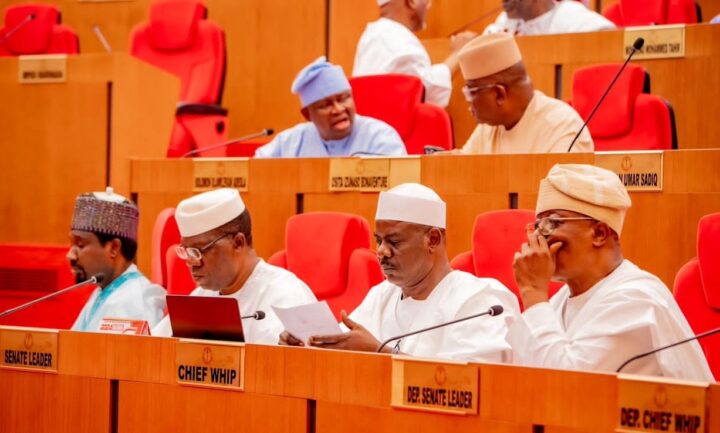The national assembly
On March 20, the senate and the house of representatives ratified President Bola Tinubu’s request for an emergency rule in Rivers state.
The legislative approval came two days after the president made the procllamation in the south-south state, citing protracted political crisis and vandalisation of oil facilities.
Tinubu also suspended Siminalayi Fubara, governor of the state; Ngozi Odu, his deputy; and all house of assembly members — for six months.
The president subsequently appointed Ibok-Ete Ibas, a retired vice-admiral, as the sole administrator.
Advertisement
Section 305 of the constitution, in which the president derived the state of emergency power, states that for his proclamation to be valid, the national assembly must approve it by a two-thirds majority.
With 360 members in the green chamber and 109 in the senate, Tinubu needed a minimum of 240 votes in the house of representatives and 73 in the upper legislative chamber for his proclamation to be upheld.
However, both chambers approved the emergency rule using the voice vote method.
Advertisement
CONTROVERSY OVER VOICE VOTE
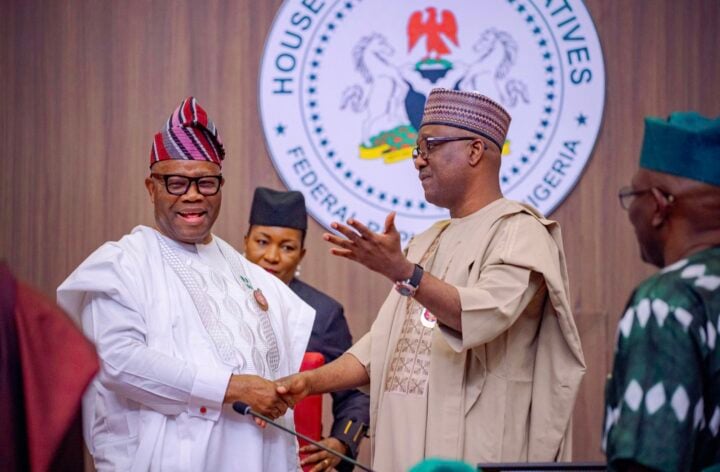
The legislators’ approval of the emergency rule through voice vote — a method in which the presiding officer determines an outcome based on the volume of ayes and nays — has been heavily criticised.
Although voice voting is common for routine legislative decisions, its use in crucial constitutional matters — like approving a state of emergency — remains highly contentious.
A key concern is the lack of a verifiable count.
Advertisement
Several stakeholders, including lawmakers, have challenged Senate President Godswill Akpabio and Tajudeen Abbas, speaker of the house of representatives, over their decision to opt for a voice vote.
Ireti Kingibe, senator representing the federal capital territory (FCT), argued that a voice vote is inadequate for determining the constitutionally required two-thirds, stressing that the constitution mandates a precise count, which cannot be accurately achieved through a voice vote.
Aminu Tambuwal, senator representing Sokoto south, echoed a similar concern and said the national assembly did not demonstrate a two-thirds majority.
Tambuwal said the approval process was unconstitutional as the attendance in the senate did not meet the required 73 members, and the voice vote failed to confirm the actual count.
Advertisement
Clement Nwankwo, executive director of the Policy and Legal Advocacy Centre (PLAC), said the development could set a dangerous precedent for legislative decision-making.
“At a time when the national assembly has come under intense negative media and public scrutiny and stakeholders engaging the legislative institution are working hard to promote positive engagements between its members and citizens, the action taken today will further undermine the trust citizens have in the institution and its ability to stand for what is right,” he said.
Advertisement
THE QUORUM DEBATE
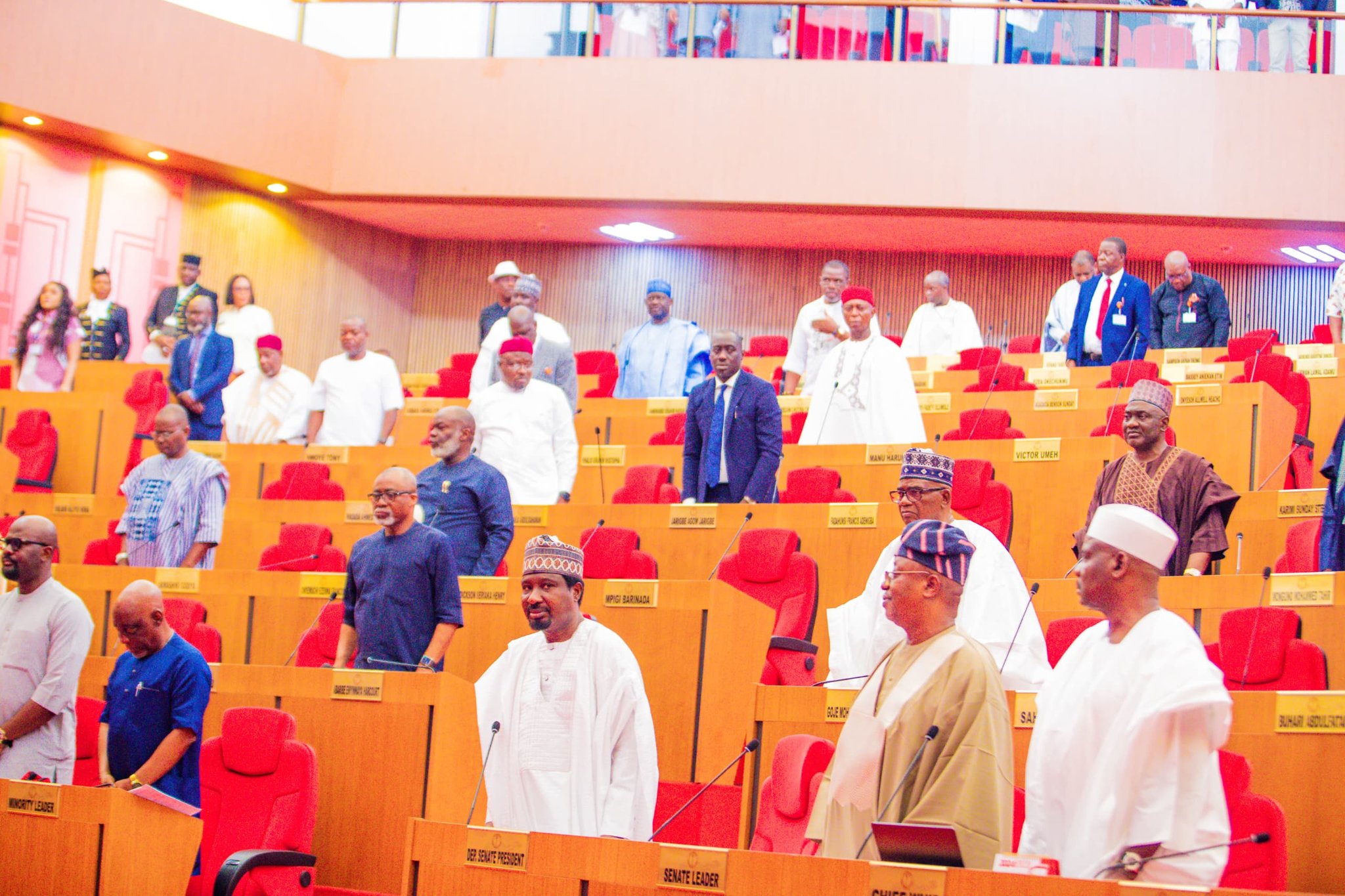
A quorum is the minimum number of members required to be present for the house to conduct legislative business. The quorum of the house of representatives is one-third of the house, that is, 120.
Advertisement
The standing rule of the house of representatives states that without a quorum, no valid decisions or votes can be made.
Before the house commenced the debate on the president’s emergency rule request, Obi Aguocha, a Labour Party (LP) lawmaker from Abia, raised a point of order, noting that the constitutional procedures must be followed as stipulated in section 305 and that headcounts should be taken to establish a quorum.
Advertisement
“Mr. Speaker, this is a constitutional issue. Can we do a headcount to ascertain that we have a quorum? To ensure that we have our constitutional requirement so that our deliberations will not be based on illegality,” he told the house.
Fred Agbedi from Bayelsa supported Aguocha’s argument, stating that the quorum should be announced to assure Nigerians of their commitment to openness.
“The issue we are debating right now is a constitutional matter, and the constitution has prescribed what and what to do. It is in the integrity and interest of this house for you to announce the quorum as we are seated so that Nigerians will know that we are not circumventing the constitution,” the ranking lawmaker said.
“I urge you that we comply strictly with the constitution by first transparently announcing the quorum as it is now.”
Abbas responded by saying the house would rely on the attendance register.
After the voice vote, the speaker said 243 members had signed the register.
However, the voice vote may not always reflect the number of lawmakers who voted, as some may sign in and leave before the voting process, while others may choose to abstain.
HAS ELECTRONIC VOTING BEEN USED BEFORE?
Order 11 of the house of representatives standing order states that the house should use a division to determine the number of lawmakers in favour or against a matter of public interest.
The rule also recognises electronic voting.
In the past, the national assembly used electronic voting to secure the two-thirds majority required for certain constitutional matters.
One such instance occurred in the 9th assembly when lawmakers used electronic voting for constitutional amendment bills.
The law requires two-thirds majority approval of the national assembly members for most constitutional amendment bills.
EXPERT: SUCH ANOMALY CAN BE CHALLENGED
Chibuzo Okereke, a legislative and policy expert, told TheCable that the action of both chambers of the national assembly can be challenged in court.
Okereke said that by not clearly establishing two-thirds, the national assembly violated the provisions of the constitution and its standing orders.
“It is clearly written there that on matters of this nature, a division should be moved. Unfortunately, no senator, whether from the opposition or ruling party, moved for a division,” he said.
“The national assembly is guided by rules and procedure, and sometimes if the rules of procedure are not applied in a politically charged situation, it becomes a problem for the presiding officers to use them.
“Experienced legislators who understand the procedure ought to have moved procedural or substantive motions or points of order to ensure that the rules are followed.
“It is a breach of both chambers’ procedures to adopt a voice vote in a matter that is clearly stated in the constitution and even the rules of the house that it shall be by a two-thirds majority.”
Okereke said that where a two-thirds majority is required, voting must be conducted through a division because it is a matter of national and public interest.
He said a voice vote is allowed in situations where the constitution or the rule prescribes a simple majority.
“That is when a voice vote can be used. People should take this democracy seriously,” he said.
He said the decision of the national assembly may “become faulty” if it is tested at the court.
“Did you follow your procedure in line with the constitution, standing orders, and other relevant laws to do what you have done? Can you wake up and interpret that a two-thirds majority means a voice vote? The answer is no,” he said.
“The national assembly is not a place of suggestion, advice, or expression of emotion. It is a place where you use motion to elicit resolutions. Legislators, especially those in opposition, cannot keep quiet, fold their hands, and later come out to talk when the deed has been done.
“We expected them to apply the rule, move for a division, and vote for a quorum. All this did not happen. So, you cannot really blame the presiding officers who are members of the party of the president and whose role is to mobilise their parliamentary tactics to ensure that any proposal of the president gets passed.”
Okereke said opposition lawmakers should be blamed for not ensuring that the procedure of the house was adhered to.
“A flaw of procedure is a serious matter that the court will take into account in a judicial review. The constitution says that in the exercise of legislative power, it must be within the jurisdiction of the court,“ Okereke said.
‘PRECEDENT SHOULD HAVE BEEN FOLLOWED’
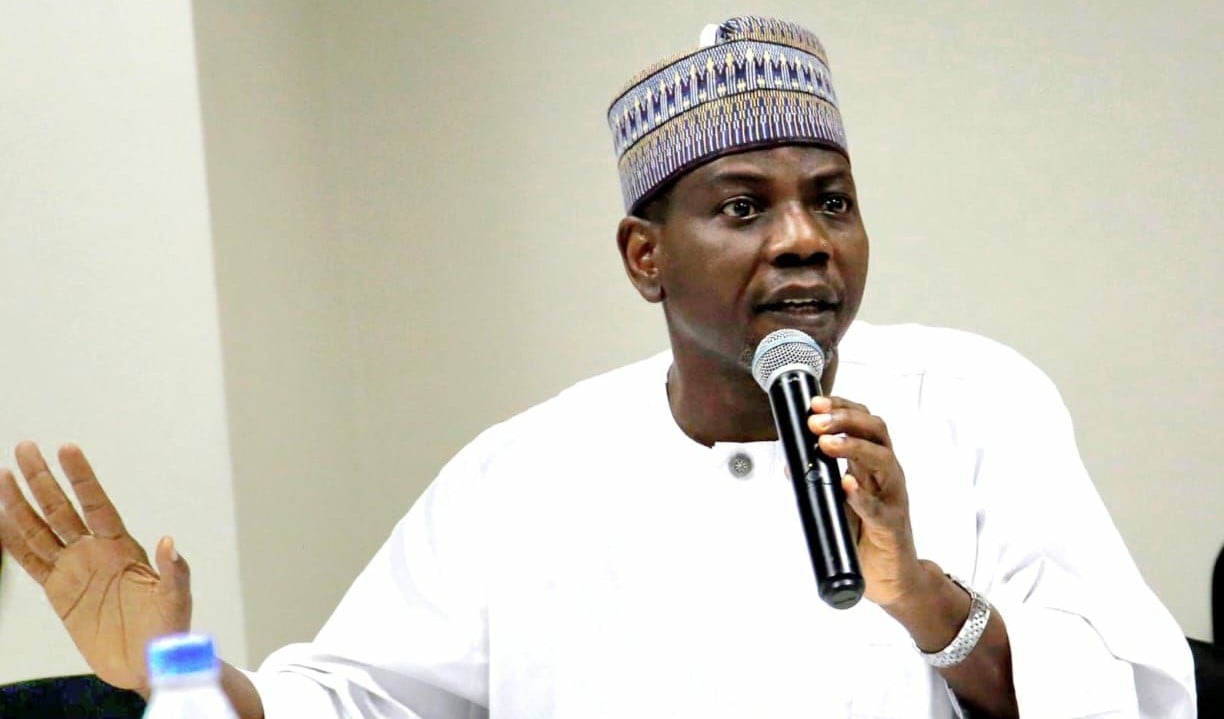
Ali Ahmad, professor of constitutional law and legislative studies at the University of Abuja and former member of the house of representatives, said the national assembly should have upheld legislative precedent by using electronic voting or division.
He argued that two-thirds cannot be determined through a voice vote and that lawmakers acted against established rules.
“If it were a simple majority, a voice vote would have been enough. But it required a specific two-thirds. There is no other way to know a specific majority except through electronic means, when everybody will point a button, or through physical division,” he told TheCable.
“But people use their discretion contrary to the law. Everybody knows it is not proper. My worry is that no objection was raised.”
The professor said the “way and manner” the national assembly ratified the president’s rule can be challenged in court.
“As a former legislator, I would want us to abide by the constitution and precedent that has been set. Without prejudice to the fact that it can be challenged in the court, of course, it can be challenged,” Ahmad said.
“Now, we have muddled everything, and we have taken some steps backwards. For our democracy, it is not good.
“As a lawyer, when the probable litigant refuses to go to court and just internalises the complaint, it is very dangerous.
“It is very dangerous when people no longer, for one reason or the other, for a good reason or bad reason or right reason or wrong reason, refuse to go to court.”
The national assembly is currently amending the 1999 constitution. It remains to be seen if the presiding officers will use the voice method when lawmakers vote on the bills.
